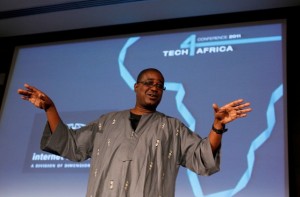 Herman Kojo Chinery-Hesse, a technology engineer, has disclosed that the National Identification Authority (NIA) can locally produce the new national identity cards at a cost of only $10 million.
Herman Kojo Chinery-Hesse, a technology engineer, has disclosed that the National Identification Authority (NIA) can locally produce the new national identity cards at a cost of only $10 million.
The NIA has contracted a $115 million loan facility from the Exim Bank to undertake a fresh registration of all Ghanaians under an “expanded registration project.”
The decision to register Ghanaians anew comes six years after the Authority began a mass registration exercise, completing it in seven regions and parts of the three northern regions; and card distribution exercises in parts of the Greater Accra Region.
According to Chinery-Hesse, if the Authority opts for a simple and inexpensive card, it will be needless for them to “run around borrowing money and impoverishing and embarrassing our country.”
The Public Affairs Director of the National Identification Authority (NIA), Bertha Dzeble, has defended the authority’s decision and said there is the need to upgrade their system to meet international standards.
Speaking on Eyewitness News, Chinery-Hesse stated that the production of the cards can be done locally.
“If you get two local firms, they can put this together in no time to solve 99% of the problem…and it won’t cost more than $10 million in terms of the technology.”
He remarked that “if they [NIA] are saying there is an international regulation that stops them from doing it and making them have to go for an expensive solution or a complex imported solution, well, that is a different matter.”
“But if all we needed to do was identify Ghanaians, see who is a child, see who is a woman, with a simple cheap card; in fact if you push it hard, you can even tie it to people’s phones so that we won’t need a card at all.”
The technology engineer recommended that the best way to handle the situation is to get a “single card which is just a reference point so that all the data regarding one person lives rather on the cloud. So we really don’t need to have the information on the card as long as you can identify that this is the guy holding the card.”
Chinery-Hesse added that contracting local technologists to undertake the project “will give a lot of Ghanaian programmers…the people who manage databases, and it will give the children coming out of the university a chance and it will cost much, much less.”
In a related development, the president of IMANI Ghana, Franklin Cudjoe said he is astonished at the surprise being expressed by Ghanaians over the NIA’s decision.
He recalled that about a year and a half ago, IMANI officials met with the NIA executives to challenge them to abort the intention to organize a new nationwide registration exercise.
But according to him, “they were not convincing enough to give us any real reasons why they were going to sideline something they had done, wasted taxpayers money, and then going to start another exercise.”
Cudjoe was convinced that the amount of money which has been contracted to undertake the project signifies that “a lot of cooking has been going on.”





